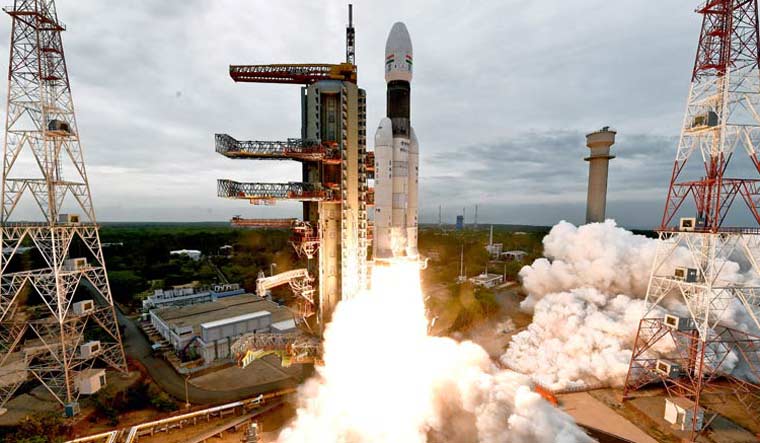In a move that the government has termed a historic reform, the Union Cabinet chaired by Prime Minister Narendra Modi on Wednesday approved a slew of changes in the space sector to boost private sector participation in the entire range of space activities.
The privatisation of space had earlier been announced by Finance Minister Nirmala Sitharaman when she expounded on the sectorial changes that would be brought about to help the Indian economy become self-reliant or “aatmanirbhar”.
The government has created a new outfit, the Indian National Space Promotion and Authorisation Centres (IN-SPACe) “to provide a level playing field for private companies to use Indian space infrastructure.'' IN-SPACe will also hand-hold, promote and guide the private industries in space activities through encouraging policies and a friendly regulatory environment.
The government had recently created a public sector enterprise, New Space India Limited, which will now re-orient space activities from a supply-driven model to a demand-driven one, thereby ensuring maximum utilisation of our space assets, says a statement released by the government.
“These reforms will allow ISRO to focus more on research and development activities, new technologies, exploration missions and human space flight programme. Some of the planetary exploratory missions will also be opened up to the private sector through an announcement of opportunity mechanism.” the statement added.
The privatisation of space has been welcomed by ISRO as the need of the hour. Chairman K. Sivan had earlier told THE WEEK that as the range of activities related to space increases, and the number of satellites to be developed and sent also increases, the premiere space agency needs to ease some of this workload so it can concentrate on what it can do best—developing new technology and doing science. K. Radhakrishnana, former chairman, had explained that ISRO had decided to partner with the private sector as early as the 1970s. While so far, this partnership was in manufacturing hardware according to ISRO’s specifications, gradually the scope of the work has changed. The private sector will now be roped in not just to design for Isro, but also to have its own industry.
India is among a select group of countries that have advanced space capabilities. The reforms are aimed at injecting new energy into the sector so it can leapfrog into the next stages of space activities. In the US, private space companies like SpaceX are working in tandem with NASA. SpaceX recently made history by becoming the first private company to launch humans into orbit, sending astronauts to the International Space Station (ISS). It was the first manned mission from American soil since 2011.
China's space programme, one of the most opaque ones among the space leaders, has also developed at a rapid pace. China has not just sent its astronauts into space but has also created its own space station. At present, China also has a probe on the moon, which successfully landed on the dark side of the moon in 2019. That same year, India's Chandrayaan 2 moon probe crash landed, and was thus unable to render any science from the surface, although the mission’s orbiter continued to record and transmit data.
China has also got a full complement of satellites, with the last of the BeiDou constellation launched into orbit on Tuesday, which will help it develop its own global navigation network. With ISRO now needing to focus more on refining its navigation systems and developing communication satellites for the military, the private sector is needed to take over the commercial aspects of space.



